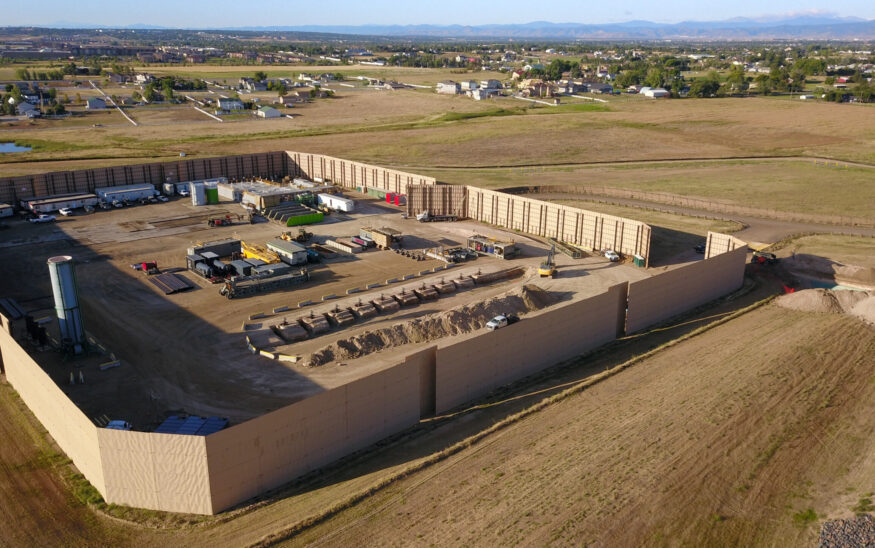2024: The Next Battle in Colorado’s Never-Ending Fracking Wars
Discover how Colorado's history with citizen-led ballot initiatives reflects a unique aspect of direct democracy, shaping not only local laws but potentially influencing federal policy on fossil fuels.
Kelly Sloan //December 11, 2023//


2024: The Next Battle in Colorado’s Never-Ending Fracking Wars
Discover how Colorado's history with citizen-led ballot initiatives reflects a unique aspect of direct democracy, shaping not only local laws but potentially influencing federal policy on fossil fuels.
Kelly Sloan //December 11, 2023//
For decades, Colorado’s oil and gas industry has been subject to a constant barrage of threats coming from a variety of angles, including regulation, legislation and litigation. During the last four of five election cycles, you can add ballot initiatives to that list.
For years, environmental groups and ad-hoc coalitions have turned their attention particularly to ballot initiatives with the aim of severely restricting — or in some cases outright banning — oil and gas production in the state.
READ: Biden is Right About One Thing — Oil and Natural Gas Aren’t Going Anywhere
The latest ballot measure attack has been submitted to the state for inclusion on the 2024 ballot, which would again seek to ban oil and gas development in Colorado. The measure, submitted by a new umbrella organization of environmentalist groups called “Safe & Healthy Colorado,” would phase out the issuance of oil and gas “fracking” permits until finally eliminating them altogether in 2030. Never mind you, there is no such thing as a fracking permit. Make no mistake, the aim of this latest in a series of ballot initiative attacks is to ban Colorado oil and gas production. Two nearly identical versions of the measure have been submitted.
The backers of the renewed initiative are a coalition of environmentalist and progressive organizations, ranging from the more established environmental lobby groups such as 350 Colorado, WildEarth Guardians, Earthworks, and the Center for Biological Diversity, to a variety of relatively new and obscure local community associations, to more radical international movements such as Extinction Rebellion, the UK-based group that advocates civil disobedience in support of climate-related political goals. Even to your average voter, it is starting to look like an all-star cast of extremists.
Spokespeople for the coalition have said that their motivation behind advancing these measures is not only to stop the development of oil and gas in Colorado, but to protest what they perceive as insufficient commitments to the cause by Colorado’s elected officials. According to various news articles, the backers see the measure as a referendum not only on the energy industry, but on Gov. Polis and his regulatory approach to oil and gas, which they believe has fallen short of their goal to eliminate fossil fuel production completely.
Others, however, see this as simply the next step in a long-term “death by a thousand cuts” strategy to dismantle Colorado’s oil and gas industry, which has included an onslaught of new legislation, ongoing and overlapping regulatory changes, and periodic litigation to tighten new rules even further.
READ: Clearing the Air on Colorado’s Emissions
While the legislative, regulatory and legal processes are all meant by design to include an element of more stringent review and sober analysis, the more democratic process of the ballot initiative does not often lend itself to comprehensive examination of complex and detailed issues, relying more on emotional appeals and soundbite analyses to sway the Colorado electorate. That has some questioning whether the ballot box is the appropriate place to make such major and complex public policy decisions.
As an exercise in direct democracy, proponents of the ballot initiative process point to its ability to include a greater number of citizens directly in the law-making process, arguing that this grants a greater degree of popular consent. Critics of the process, however, argue that legislating via the ballot undermines the deliberative nature of the legislative process, reduces complicated issues down to campaign soundbites, and opens the door for out-of-state interest groups to use the state as a laboratory for policy ideas that have failed to gain legislative approval.
And indeed, Colorado has received something of a reputation for becoming a policy “petri dish.” For instance, Colorado became the first state in the country to legalize marijuana via amendment 64, a 2012 ballot measure. Since then, ballot measures have been used to pass increases the minimum wage, legalize assisted suicide, decriminalize “magic” mushrooms, allow sports betting, establish paid family leave and reintroduce gray wolves to the state. Other initiatives have been attempted, including to establish a single-payer health care system, and to grant legal protections to a fetus, which ultimately failed, but keep coming back at regular intervals.
And these groups and ad-hoc coalitions aren’t limited to Colorado. Of the handful of states that permit citizen-led ballot initiatives, Colorado has one of the lowest barriers to entry when it comes to qualifying an initiative for the statewide ballot. As such, out-of-state interests have targeted the Colorado ballot in the hopes of getting an anti-oil and gas initiative passed here to use as a foothold to inform federal policy.
National and Colorado groups opposed to fossil fuels have regularly used this process — or have threatened to use this process — in an attempt to further restrict oil and gas production in our state. The last major effort was in 2018, with Proposition 112, a ballot proposal that would have mandated a 2,500-foot setback between oil and gas facilities and houses, schools and other structures. Another ill-disguised attempt to ban industry, Proposition 112 and its proposed setback increase would have eliminated virtually all land in the state from being eligible for oil and gas production.
Colorado voters delivered a resounding no to Proposition 112, which was handily defeated in a blue wave election year that saw progressive victories across the board. Fast forward to 2020, the same groups sought to put another iteration of their setback increase initiative on the Colorado ballot. Gov. Polis helped broker an arrangement by which both industry and environmental groups would pull opposing ballot measures in order to allow rulemaking under the just-passed Senate Bill 181 to take shape. At the time, Gov. Polis declared that the “oil and gas wars in Colorado are over.”
But the recently submitted ballot measures by Safe & Healthy Colorado suggest otherwise. The war for them is far from over.

























